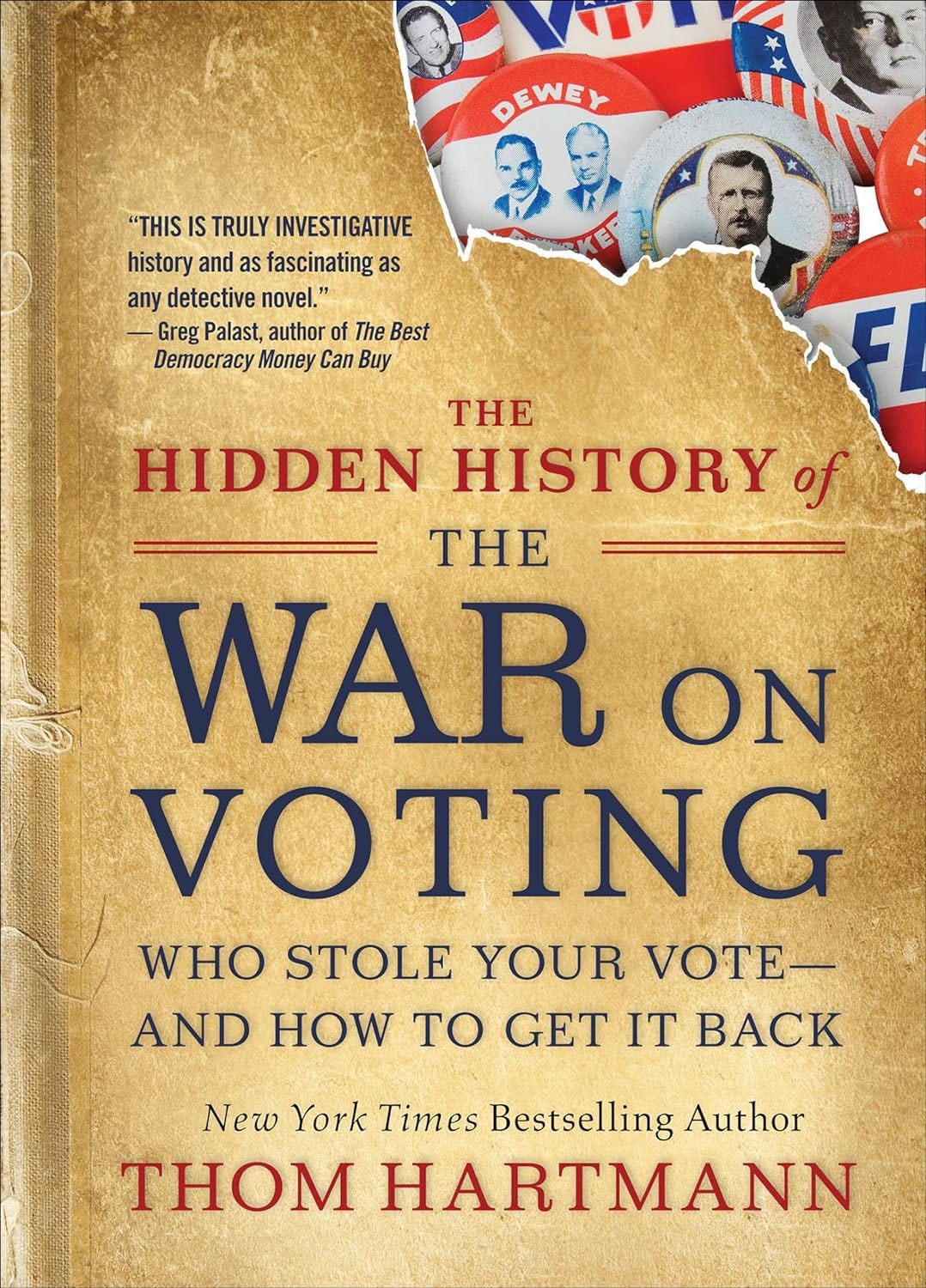Privatizing the Vote with Voting Machines
Your weekly excerpt from one of my books. This week: "The Hidden History of the War on Voting"

Privatizing the Vote with Voting Machines
While the security of our elections has apparently been put at considerable risk by bringing private, for-profit vendors into the voting business, there’s a larger issue that virtually nobody is discussing.
The Bush administration’s practice of hiring Dick Cheney’s nearly bankrupt company, Halliburton, with multibillion-dollar no-bid noncompetitive contracts to replace functions carried out by GIs for over 200 years (at a fraction of the cost) might have saved Halliburton and made hundreds of millions for Cheney and his family but was only a “small” crime against our commons, which include our military. Such privatization of our military functions has led to nearly half of the defense budget now going to for-profit corporations.
Similarly, privatizing Chicago’s parking meters by leasing them to a European company and leasing Indiana’s highways to an Australian corporation are crimes against the commons and our democracy, but small crimes.106,107 Ditto for privatizing our schools, water systems, and electrical grids—activities that, since the 1980s, have gobbled up around half of all the electric and water utilities and, in Betsy DeVos’s Michigan, about half of the schools.
Privatizing our prisons and immigration detention facilities leads to the perverse result of for-profit corporations lobbying for longer sentences for drug and other crimes, but that’s a matter of public policy that can and should be debated in the open.
Privatizing our airwaves, as Bill Clinton’s 1996 Telecommunications Act largely did, has turned out to be a public policy disaster and led to, as Forbes explained in a recent headline, the “15 Billionaires [Who] Own America’s News Media Companies,”108 but it’s reversible with enough public outrage.
But the vote is the single mechanism by which we, the people, can register our approval or disapproval of such policies and even effect their reversal. It’s the ultimate expression of the commons of our government, because it’s how we determine the course and future of our government.
To have allowed privatization of the vote—as happened on a nationwide scale with HAVA in 2002—is a crime against democracy and our commons unlike any in the history of our nation.
Now our votes are counted in secret by private corporations with specific agendas that are met, in part, by spending millions on lobbying members of Congress. They refuse to show us their software, citing trade secrets, and generally lease, rather than sell, their generally Windows-based and deeply insecure systems to states.
At the very least, states should own any voting machinery and infrastructure used in their territory, and the software should be open-source. At best, we should follow Ireland’s example and get rid of all the machines and have government own and operate all the tabulators with complete transparency.




I've corrected you before on inaccurate reporting regarding voting machines and procedures and am going to do it again. I'm an election worker in GA and have been since 2020. GA uses Dominion machines since switching from ES&S machines in 2019. Votes are NOT counted in secret by a corporation! They are counted at the County level by election workers who swear an oath the perform their duties correctly under penalty of long prison terms for violations of the oath. Voters vote on a touch screen, then are prompted to review their ballot before printing it. Then they are asked by an election worker if they have reviewed their printed ballot before they insert it into the tabulator. These paper ballots are required by law to be retained for 2 years in case of recounts or audits.
I like and respect your writing, but please do some fact checking before you spread misinformation. Our election system is under attack by Republicans who want to destroy our democracy. Please don't help them by spreading misinformation.
Again, anyone who questions this plague of privatization is a “radical” and a “socialist”. So far, there’s little indication that establishment (i.e., neoliberal) Democratic “leadership” has any awareness of or interest in the core principles of the New Deal or the common good. If we can overcome that fundamental inertia perhaps we can turn our attention to creating the sort of messaging that inspires voters. (Spoiler alert: “the left” isn’t remotely responsible for the Democrat’s most recent drubbing.)